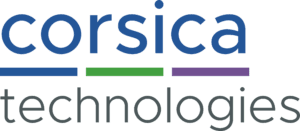Last updated June 9, 2025.
Businesses face increasing challenges in today’s economic environment. From tariffs to inflation to competition, there’s little room for errors or waste.
That’s why our clients turn to us for strategic consulting on business processes.
They want to know what’s working, what isn’t, and what they can do about it.
This is a great exercise that pays off in terms of cost savings, error reduction, and faster process execution. But you have to approach it right.
Here’s everything you need to know about business process consulting.
What is business process consulting?
Business process consulting is a collaborative effort between a consultancy and a client to analyze existing workflows and uncover opportunities for business process improvement. Success is often measured in terms of increased efficiency, decreased cost, or reduction in errors and manual interventions.
Business process consulting is closely related to digital transformation. In fact, the two terms are somewhat interchangeable, having similar goals and technology solutions.

Why choose business process consulting?
Business processes can’t stay static in an ever-changing world. As technology solutions evolve and the competition innovates, success becomes a moving target. Process consulting helps to benchmark your organization against what’s possible, identifying room for growth and helping you prioritize transformation initiatives.
Several types of pain points drive companies to engage this type of consulting.
- Difficult economic conditions. Whether it’s the effect of tariffs or some other factor, a challenging economy demands more from businesses. Processes that worked in favorable conditions may hamper an organization under challenging conditions. Consulting and process optimization can prepare a company to weather the storm.
- Tight margins. The more complex the process, the more likely it is to eat up resources that could be used elsewhere. Business process optimization is a great choice when you need to recover or improve margins.
- Competitive pressure. Some companies ride the bleeding edge of innovation in their industry. Others find themselves in the middle—or on the trailing edge. Wherever your organization sits, competitive pressure demands the best possible processes. Consulting can help you optimize, giving you an advantage over the competition.
- Regulatory pressure. Achieving IT compliance is often a separate initiative; but outside of regulatory requirements themselves, process optimization can make it easier to achieve actual compliance by paving the way, increasing quality, and freeing up resources. Pursuing compliance and process optimization in tandem is a great approach.
- Dysfunctional teams or processes. If a team has a low success rate or creates a lot of errors and waste, it’s worth looking at their processes before you look at the people. Most likely, the team lacks the right technologies and workflows to streamline and optimize their work, leading to mistakes, lost data, and missed goals.
- Lack of strategic data and insight. If a process is distributed across multiple siloed teams and systems, it’s challenging to gather accurate data about it. Yet you need that data to make forecasting decisions, allocate budget, and prepare to meet shifts in demand. Process optimization can bring all relevant data under one roof, making it easier to generate reports and gain critical strategic insights.
What are the benefits of business process consulting?
Business process consulting offers many benefits—and those benefits reinforce each other. Here’s what you can gain from this type of consulting.
Business process improvement
At a high level, this type of consulting produces better processes for your business. You can advance your organization in terms of competitiveness and innovation, leading the pack and setting new standards in your industry.
Reduced costs
Any time you improve a critical business process, you should end up spending less on it. You can return these savings to your margins—or reinvest them in growth initiatives.
Faster fulfillment and execution times
Process optimization often involves some sort of automation, whether that’s RPA (robotic process automation) or true AI. Whatever the mix of technologies (see below), an effective consulting initiative should result in processes that actually run faster. This leads to greater customer satisfaction—and better cashflow.

“We’d been running off an Excel file and paperwork, and it was completely time-consuming. When you’re dealing with well over 1,000 veterans, plus their guardians and our team members, it’s a lot of information—and a lot of paperwork.”
— Michael Thena | Tech Coordinator, Honor Flight Network
Reduced errors and manual interventions
If you rely on humans for data entry or routine administrative tasks, there’s a lot to be gained from automation—not only in terms of execution time, but also accuracy. Optimized processes give you fewer errors that require human intervention. With this burden reduced or eliminated, you can right-size your organization or reassign team members to higher-value tasks.
Better business intelligence for strategic decisions
Process consulting often overlaps with business intelligence consulting. Better processes will create cleaner data, and you want to capture that data and make it freely available to the right stakeholders.
Coupled with better business intelligence systems, process optimization can advance the business strategically. Optimized processes typically have a “home”—a single software system that houses everything related to the process. This is a huge improvement from processes that existed in multiple systems or weren’t executed in software at all. Aside from significant gains in efficiency and accuracy, you also get a single source of truth for data related to that process. This makes it much easier to review KPIs, identify trends, and plan strategically.

What technologies are used to optimize business processes?
The exact answer will depend on your needs. Business process consulting covers a wide range of workflows in numerous industries, and different technologies will be appropriate in different circumstances.
That said, here are the initiatives and solutions that we recommend most often with our clients.
AI solutions
AI is an exploding field, full of amazing opportunities for businesses to optimize their processes. The list of use cases is endless—but here are a few that we see frequently.
- Research, drafting content, and summarizing meetings
- Executing complex tasks on a computer
- Generating marketing videos
- Advising on financial matters
- Optimizing supply chains
- Handling customer service chats
- Assisting with coding
That’s just the beginning. Learn more here: 7 AI Strategies that are Winning in Real Life.
RPA solutions
RPA (robotic process automation) uses specialized technology to executive repetitive, rule-based workflows that don’t require sophisticated human judgment.
RPA may sound similar to AI, but it’s actually quite different. Where AI can provide new insight that mimics human thinking, RPA doesn’t innovate; rather, it rigorously executes tasks defined by logic and rules. Consequently, RPA is a better fit for mundane workflows with clearly defined parameters.
Here are a few common RPA use cases—but don’t worry if you don’t see yours. The sky’s the limit with RPA.
- Invoice processing
- Payroll processing
- Report generation
- Appointment scheduling
- Supply chain management
- Email marketing communications
- Demand chain analysis
Data integration solutions (including EDI)
Siloed data is one of the biggest problems in any organization. Whether it’s internal systems or those owned by your trading partners, you need that data to flow automatically—and it needs to arrive in the right format.
If you’re relying on humans to rekey data from one system to another, you have an opportunity to do better. Data integration solutions ensure that data gets shared automatically. This is especially powerful in the realm of EDI solutions, where integration allows you and your trading partners to send and receive business documents hands-free.
Cloud systems
In some cases, executing a process in a cloud system may be more efficient than doing it on hardware that you own and maintain. This is especially true if the process can be supported by cloud services rather than cloud servers.
However, not every on-premises system should be migrated to the cloud. It’s important to audit the requirements of the process, run a cost analysis, and consider the resources required to maintain a cloud system. Learn more here: Cloud Cost Optimization: 4 Strategies to Win.

What should you look for in a consulting firm?
Not all consultancies are created equal. It pays to get selective as you evaluate service providers. Here’s what you should look for.
- Strong consulting record in your industry. Good consulting requires C-level expertise that’s familiar with the unique challenges of your industry and your processes. Not all consultancies have what it takes to deliver in the context of specific regulatory frameworks, customer expectations, or operational roadblocks. Make sure your chosen consulting firm has a strong list of references in your industry. Check out our industries here.
- Comprehensive expertise across many technologies. Some consulting firms may only work with the IT side of things. Others may focus on specialized disciplines like cybersecurity or data integration. But you’ll get the biggest impact from process optimization if you can take a comprehensive, integrated approach. That doesn’t mean overhauling the entire business in one project—but it does mean planning for the ripple effects of one initiative and covering all your bases. That’s why the Corsica team specializes in IT, cybersecurity, data integration, EDI, and digital transformation—plus consulting in all these areas. Check out The Corsica Difference.
- The ability to implement. Some companies only do consulting, handing off clients to partners who will actually implement projects. That may work for some organizations, but we see the best results when consulting and implementation happen under one roof. You want a tightly integrated team working with you every step of the way. That’s why the best business process consulting firms also provide implementation services for their recommendations.
The takeaway: Don’t wait to optimize your processes
With challenging economic conditions and increasing competitive pressure, the time is now to optimize your processes. The right consulting firm can analyze your business from top to bottom, then recommend a detailed plan to improve your processes. You can get your margins back, deliver faster, and stay ahead of the competition with refined processes and right-fit technologies. Here at Corsica Technologies, we deliver better processes every day. Get in touch with us to start your journey.
Ready to take the next step?
Get in touch with us today to start your consulting journey.













